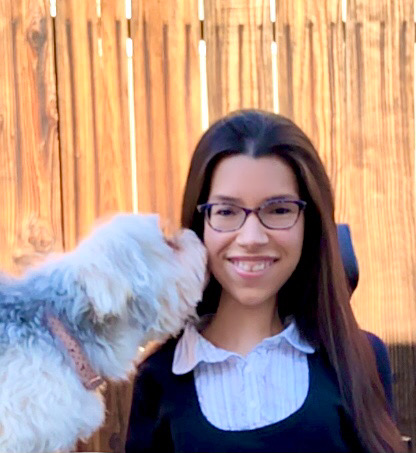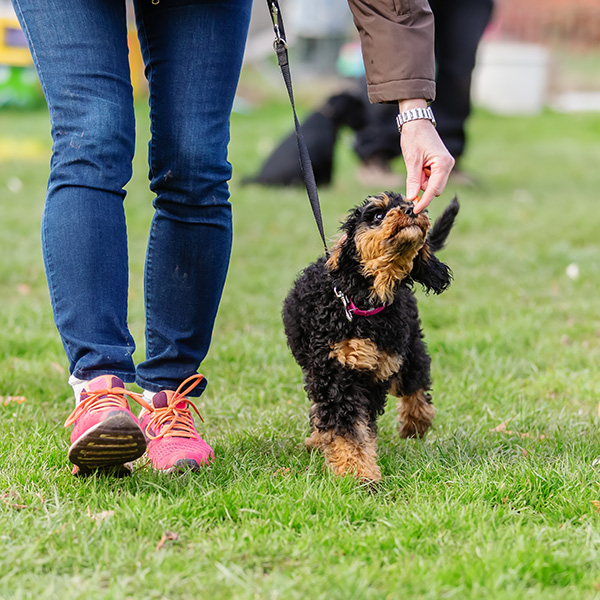Your Journey To A Happy, Well Mannered Dog Starts Here
Your Journey To A Happy, Well Mannered Dog Starts Here
Meet The Dog Trainer
Hi, I’m Sarah Rodriguez!
I am a certified professional dog trainer (CPDT), Certified Dog Behavior Consultant (CDBC), and Fear Free Professional committed to building deeper bonds between people and their pets. I have volunteered with animals since I was a young teen and have 20 years of experience working with shelter and rescue animals. I have shared my home with dogs for most of my life, both as a dog mom and foster mom, so I understand first hand the difficulties of living with behavior challenges and the joys of living with well-mannered dogs.
My passion for animals is what started my career, and each day my passion fuels the work I do to ensure that dogs and their humans live harmoniously and happily together. I’m here to support you every step of the way of your training journey, and I am committed to solving even the most unique behavior problems. Helping you and your dog in the best way possible drives me to continually learn about the latest research and scientifically proven methods of dog training. I both attend and speak at canine behavior and training conferences and volunteer with my local animal shelter.
I enjoy teaching cooperative care to take the stress out of canine care. Two of my biggest joys are helping build confident, well-mannered puppies and helping fearful dogs become confident and resilient so they can enjoy life with their humans. So give me a call! I’m here to help you get started on your journey to a deeper bond and better life with your dog!

Our Canine Training Services
In-Person Dog Training
In person training takes place in Covina, CA where you and your dog will learn new skills in a cozy environment. You and your dog will meet with our Certified Dog Behavior Consultant for an hour in your first consultation and training session.


Virtual Dog Training
Virtual training takes place in the comfort of your own home through Zoom or FaceTime. Our Certified Dog Behavior Consultant will meet with you virtually for scheduled sessions and walk you through each training exercise, guiding you each step of the way.
Tailored Dog Training
Every dog is different and requires a customized training plan unique to them. Unlike large chain training facilities that offer cookie cutter advice, you and your dog will be treated like family at Home Schooled Hound. We will support you every step of the way with text support any time you need between sessions. With years of experience, we customize our training advice to you and your dog’s needs. We know it’s frustrating to struggle with your dog’s behavior problems, and our kind and gentle approach will help you feel understood and supported as we help you reach your training goals.





Join Our Expert Dog Trainer Sessions Today
Ready to witness remarkable transformations in your dog’s behavior? Join us on this journey of effective behavior modification and training through positive reinforcement. Let’s create a lasting bond with your furry companion – sign up for a session now and experience the joy of a well-trained, happy dog!


